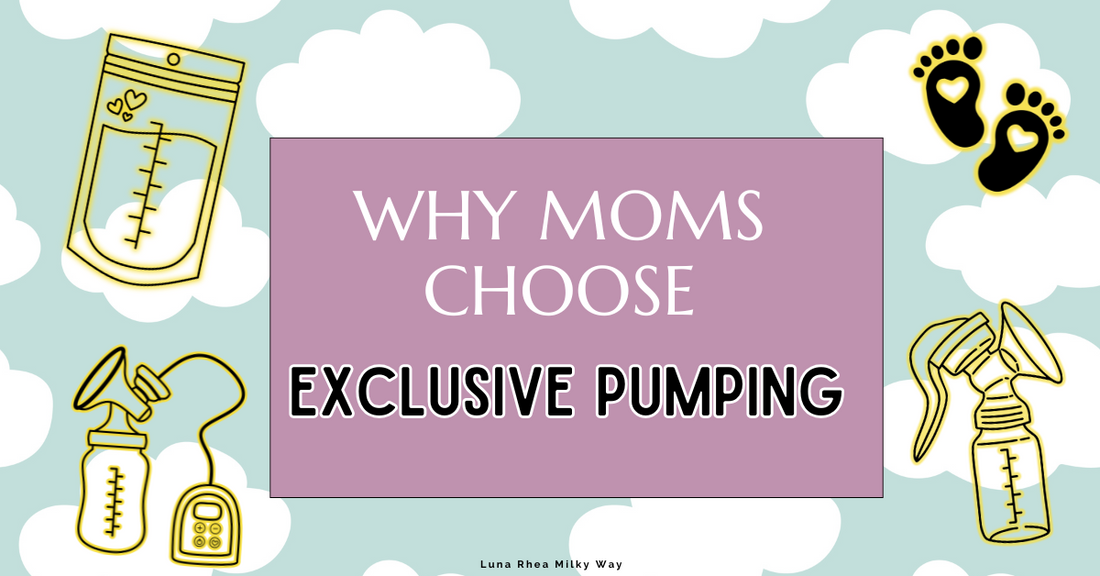
Why Moms Choose Exclusive Pumping
The Rise of Exclusive Pumping: A Modern Path to Breast Milk Feeding
“Exclusive Pumping” (EP) refers to feeding a baby only expressed breast milk via a bottle, with no direct breastfeeding involved. Exclusive Pumping has grown steadily in popularity over the last decade which isn’t surprising, given the changes the modern mom faces.
Why Moms Choose Exclusive Pumping
1. When Direct Breastfeeding Isn’t Available
Many parents begin EP because of challenges with direct nursing—baby can’t latch, low hospital weight, or NICU stays. In fact, about 89% of EP moms shift to pumping after unsuccessful attempts at breastfeeding.
2. For Preemies and Special Needs
NICU stays—especially with very premature infants—often require bottle or tube feeding. EP allows parents to provide the vital benefits of breast milk during this critical phase.
3. Career and Lifestyle Demands
Moms heading back to work soon after birth can build a breast milk supply ahead of time. Pumping enables partner involvement, shifts sharing, and greater flexibility. Pump in peace, anytime, anywhere in our Patented Luna Rhea Shirt.
4. Emotional Resilience and Control
Though many moms planned to breastfeed, mapping a feed plan to EP can feel empowering—especially when healthcare providers emphasize breastfeeding over pumping. Research shows that EP moms often feel “unseen and unheard” by clinicians, yet do so to preserve feeding autonomy .
The Benefits of Exclusive Pumping
Exclusive pumping delivers breast milk’s unmatched nutrition and antibodies, helping prevent illness while supporting gut and neurological development. It also offers structured control over feeding times and portion sizes, which can be especially helpful for families managing a schedule or building a freezer stash. Beyond convenience, exclusive pumping creates opportunities for shared caregiving, allowing partners or family members to bond with the baby during feedings. For NICU babies or infants who can’t nurse directly, it bridges the gap—making it possible for them to still receive the many benefits of breast milk safely.
It’s time for EP to be treated as a respected and supported method of infant feeding. Healthcare systems need to offer guidance, understanding, and practical tools—so moms who choose this path can thrive, not just survive.
